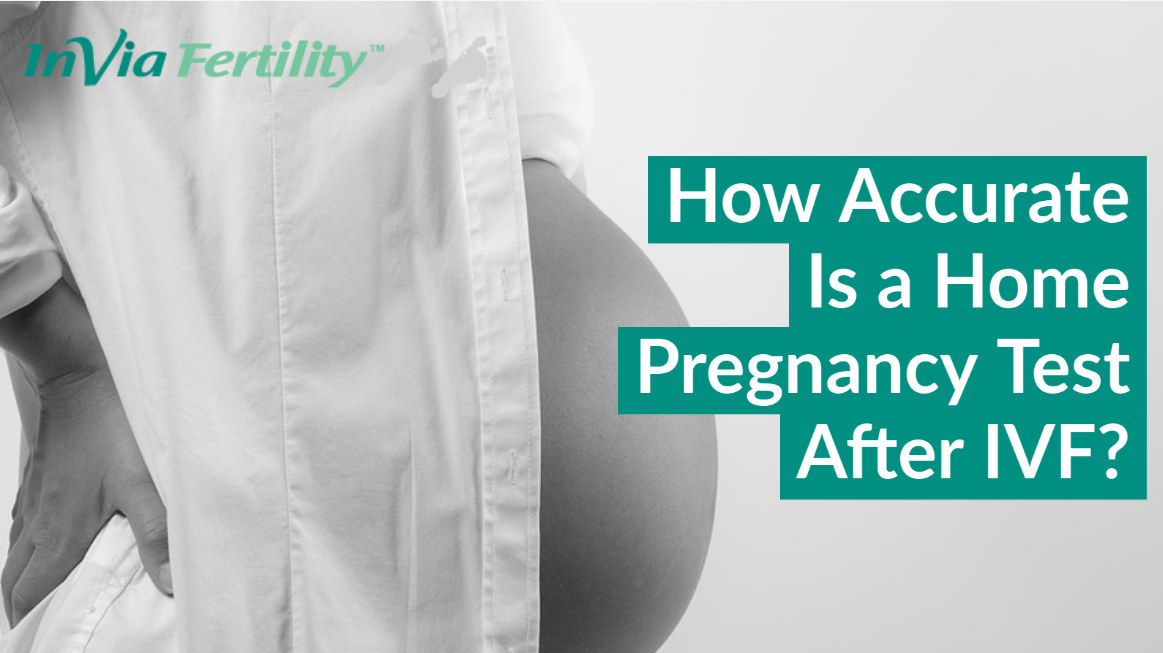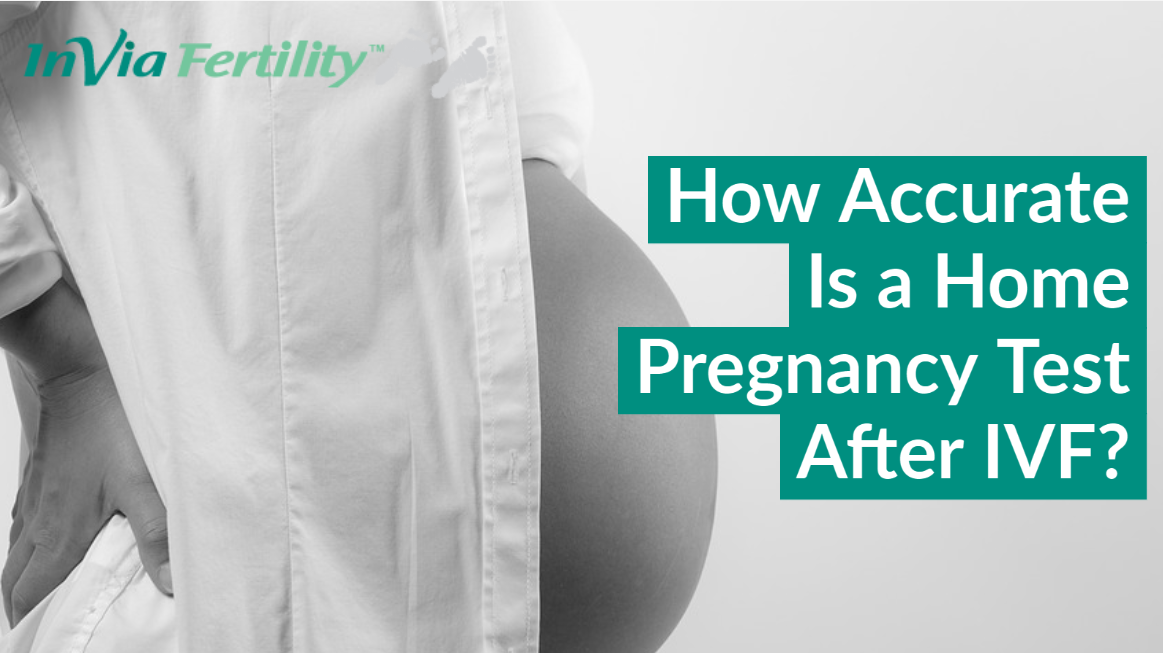We are experiencing a very high volume of calls and messages and ask for your patience. We will answer your portal messages within 48 hours.
We are experiencing a very high volume of calls and messages and ask for your patience. We will answer your portal messages within 48 hours.


10 days!? 12 days!? I have to wait how long to find out if I’m pregnant or not!? While patients engaged in IVF are scheduled as early as possible for their serum (blood) hCG level (pregnancy test), many women cannot resist the urge to "cheat" and take a home pregnancy test with IVF.
Although in most cases this can be an accurate measurement of whether you are pregnant or not, it is not always a true reading.
Let’s start by discussing what hCG (human chorionic gonadotropin) means. hCG is known as the pregnancy hormone. It is secreted by the early developing placenta shortly after implantation occurs. It is also the same hormone in ovulation induction injections such as Pregnyl or Novarel. When the hCG injection is used, it causes the final maturing phase for the egg so it is able to separate from the cells in the follicle. Ovulation occurs 36-40 hours later. This process is also referred to as “popping” or “triggering."
Home pregnancy tests have been around since the mid-1970’s. Many different brands exist, all claiming to be the best and fastest, but the premise remains the same. A test strip on the device is saturated in urine and a ‘line’ appears next to a control line if positive. While this seems like a foolproof method of testing, a study in 1998 showed the accuracy rate of home tests to be only 75% due to consumers not understanding or failing to follow the directions.
So what’s the difference if I take a home pregnancy test or have my blood drawn? There are actually quite a few. The main one is that the blood test is more accurate. Patients may get a false reading with a home pregnancy test. This can be either a false negative (when you get a negative reading, but are actually pregnant) or a false positive (the test shows you are pregnant, but you are not).
The first and most common cause of a false reading is the timing of the test. If done too early, there may not be enough of the hCG hormone present in the urine to show a positive. If done too early after receiving a trigger shot for fertility treatment, there may still be medication circulating in your system which would show a false-positive reading. According to Crolla (2014), “urine hCG concentrations are approximately one-half of, or less than one-half of, corresponding serum hCG concentrations.” This means that you would have to have twice as much hCG in the urine as the blood test would show. As the pregnancy advances and more hCG is present in the body, the chance of a false negative decreases.
Another factor to take into consideration is whether or not you have taken an hCG trigger injection to induce ovulation. These injections are used in the majority of fertility cycles (IVF and IUI). This shot may remain detectable in your system for 10 days to several weeks after it is given, depending on what studies you review. According to one study in the Human Reproduction Update, when 5000 iu of hCG was given (half of what is typically used at our clinic), the blood hCG levels did not decrease to negative (below 5 iu/l) until after 8-12 days.
False positives may also occur if the kit is expired or it is over the 3-5 minute window the instructions give to read the result. In addition, a one-time urine pregnancy test gives a qualitative reading which simply means positive or negative. A serum test gives a quantitative reading, which means you receive an actual number. This is especially important for repeat tests checking to make sure the level is rising appropriately.
Taking a home pregnancy test with IVF and getting a false reading, whether positive or negative, could lead to inappropriate treatment or discontinuation of treatment. Women are typically on progesterone supplementation after their fertility procedures, and after getting a negative at-home test, may discontinue it. This could be detrimental to the pregnancy. Regardless of what the home pregnancy test shows, further confirmation will need to be done with a blood draw.
Awaiting a pregnancy test result can be agonizing. Fertility treatment is a stressful and emotional time period filled with anxiety and hope, and it all leads up to the pregnancy test. While it is easier said than done, patients should wait until the day they are scheduled for the pregnancy test blood draw. False readings at home could lead to disappointment, sadness, or confusion, and patients may discontinue necessary treatment. Make plans with your partner, a close friend or family member on the day of the result. That person can be a shoulder to cry on or the first to congratulate you on the positive result.
To see a fertility specialist who can help you make sure you get accurate information about your pregnancy, make an appointment at one of InVia's four Chicago area fertility clinics.

Entire Website © 2003 - 2020
Karande and Associates d/b/a InVia
Fertility Specialists
